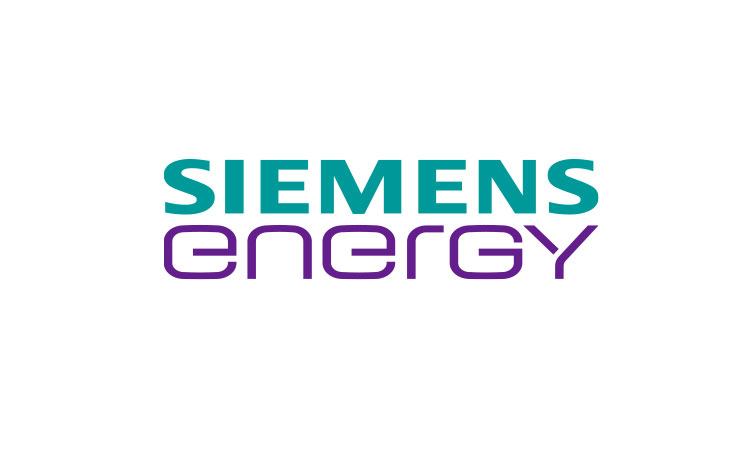The Next Frontier In Industrial Safety: How Low-Voltage…

Technology trends revolutionizing the world of pumps | Engineering Review
Technology and digitalization will play the most critical role in developing water infrastructure in the country which will be at par with global standards.
The Growing need for technology
Innovative technologies have been disrupting the water industry in the past decade. Be it industrial facilities or commercial space, with the growing requirement to use water effectively, the role of pumps have been crucial than ever. Industrial processes consume a significant portion of the groundwater amounting to 13% of the overall freshwater used. Indian industries are also impacted hugely owing to the current water crisis that the Nation is facing. Industries therefore need to work on ways and methods to improve water security and resilience by adopting newer technologies. There are various opportunities for organizations to implement digital strategies and rapidly adopt relevant technologies. Companies must be agile to adapt digital transformation during this time to retain their relevance in the post-COVID world.
Industry 4.0 technologies such as IoT can be used to mitigate some of the COVID-19 associated risks on the supply chain. Technology and digitalization will play the most critical role in developing water infrastructure in the country which will be at par with global standards. Several planned investments are being made currently to accelerate this transformation. Rapid adoption of technology will also be primarily reflected in manufacturing processes and supply chains.
As a global market, industrial pumps are worth (or 4 trillion rupees / INR) USD 62.6 billion as of 2019. This figure is estimated to grow at a CAGR of 5.9% over the forecast period[1], given the rapid industrialization the world is undergoing. With the growth in infrastructural development, many sectors such as Domestic Buildings, Commercial Buildings, Industries and Water utility are highly dependent on water pump systems in their day-to-day operations where the pump needs to be resistant to failure with a high capacity to function faster. Traditional pump systems are often prone to leakages and errors; therefore, require human intervention. As they need a reduction in the unit cost of delivery, meaning companies are striving to boost the performance and efficiency of pumps actively. Combining advanced technologies into pump solutions helps operators to measure pump performance, which will improve productivity, while saving on energy and delivering desired outputs.[2]
Digitalized pumps – an ideal solution to modernized industries
As the world adopts digital solutions such as IoT, data analysis and network connectivity into accelerating their operations, the pump industry is resorting to digitalization for better water management, identifying faults, capture live data and all the while through a remote monitoring option. Modern pumps are being developed to fit the needs of constructions of the future, where output is required to be delivered faster, with more competence; and integrating digital technologies into pumps is the potential solution to offer this.
Internet of Things (IoT) is an emerging digital solution that has revolutionized the $2.8 trillion and $6.7 trillion worth smart infrastructure sector[3]. The integration of IoT in such pump solutions, develops a human-machine interface that allows for a closer look into operating pumps in real-time with lesser human effort. Smart sensors, a significant asset of IoT, is an example of this, which integrate embedded sensors and external sensor arrays. IoT’s interconnectivity creates a network of every device equipped with smart solutions for an ecosystem of wireless connections across a facility to work in unison.
Grundfos uses this in servicing its pumps. Digital services from Grundfos adopt data-driven digital technologies to reduce downtime through remote monitoring of intelligent pump that uses cloud connectivity and digital services.[4] Grundfos’ SmArt Serv[5] is another such application that uses digitalization to make pump servicing easier. The mobile application allows the user to raise a service request online to identify a service provider. Also, it helps to get an estimated cost for new spare parts.
Digitalization brought revolutionary applications and technologies to pump development. Lately, innovators are leveraging big data by integrating digital technologies to the pump systems. This will help to optimize their effectiveness by studying, foreseeing and rectifying recurring damages. Big data analytics help in proactively monitoring the history of a pump system to be serviced accordingly. This reduces servicing time and increases accuracy in rectifying failures within shorter periods of times.[6] This ability of big data prevents disruption of work in more extensive facilities where several systems are interdependent on one another, and the stoppage of one such unit may put a pause on the overall outcome. Pumps can, therefore, perform non-compliance reporting and alarming, reduce water loss and ensure a better quality of water management. [7]
Innovative solutions like the Grundfos iSOLUTIONSare also designed to study the performance of a pump and adapt to it, which minimizes the energy consumption, making your pumps smarter and greener. Furthermore, the ability to customize solutions for every pump, pump systems are bound to experience less downtime and fewer failures, thereby emphasizing on the benefits of digitalized pump solutions.
Water leakage has been silently worsening India’s deteriorating water scenario. For instance, in Mumbai, almost 27% of the city’s water is lost due to leakages. Similarly, 37% of Bangalore’s water supply is lost before reaching the end-user. Grundfos’ Demand Driven Distribution (DDD) is a multi-pump solution operating at proportional pressure, essential to effective leakage management. This solution is designed to provide the precise amount of flow at the same pressure. Grundfos helps in saving significant energy, water and operating costs. DDD helps in water leakage up to 20% and, thereby, energy savings as well.
Impact of intelligent pumps and the future
As water management becomes more crucial for both industries and households, Grundfos’ digitalization efforts are contributing to revamping pumps into smarter systems. One such solution, SMART DESIGN, makes maintenance easy for service technicians. In addition to this, the pump-controlling and pump selection application that can be accessed by industry professionals, Grundfos GO assists experts with updated data on pump solutions on field, reducing time on documentation, finding sizing tools and data collection. Experts can now search for a pump’s name or brand to find the replacement instantly, with updated data such as power consumption, temperature, running hours and water flow. The rise of IoT technologies in compressors, centrifugal pumps and positive displacement pumps is estimated to show a compound annual growth of 46.5% from 2016 to 2021[11]. This showcases how companies are recognizing the importance of digitalization to make pumps smarter ultimately.
You may go to the following links for further information on each aspect dealt in this paper:
[1] https://www.grandviewresearch.com/industry-analysis/industrial-pumps-market#:~:text=The%20global%20industrial%20pump%20market,pumps%20over%20the%20forecast%20period.
[2] https://www.pumpsandsystems.com/conventional-testing-vs-thermodynamic-model
[3] https://www.pumpsandsystems.com/digital-transformation-drives-smart-pump-industry
[4] https://www.grundfos.com/service-support/find-service-product/digital-services.html#overview
[5] https://www.grundfos.com/in/support/Grundfos-SmartServ-Mobile-App
[6] https://empoweringpumps.com/frost-sullivan-digital-transformation-internet-things-iot/
[7] https://www.wwdmag.com/smart-water/digital-transformation-path-smart-water-operations
[8] https://www.grundfos.com/products/features/grundfos-isolutions.html
[9] https://www.waterworld.com/technologies/article/16191005/digital-technologies-advance-performance-of-metering-pumps
[10] https://www.grundfos.com/get-smart.html
[11] https://www.pumpsandsystems.com/digital-transformation-drives-smart-pump-industry









